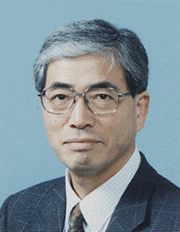

The Japanese Society of Fisheries Science
Shugo Watabe, President
Over three years have passed since the eastern coasts and other areas of Japan were devastated by a major earthquake off the Tohoku region's Pacific coast on March 11, 2011. The fisheries industry also suffered greatly from this disaster, which has become known as the Great East Japan Earthquake. Nonetheless, I understand that many JSFS members took the initiative to support disaster recovery and restoration efforts in the earthquake's immediate aftermath. Our executive board for the 2010-2011 term also responded promptly; in fact, a “workshop for disaster recovery in the fisheries industry” was organized by our policy committee on March 29, 2011. We also launched a fundraising drive for disaster relief and presented an action plan for recovery to the public on April 11, 2011. We subsequently engaged in various other support activities, particularly noteworthy among them was our establishment of an “activity base for disaster recovery” within the JSFS Tohoku branch on June 4, 2011. Our executive board for the 2012-2013 term established a committee to study reconstruction support following the Great East Japan Earthquake (a special committee) on June 2, 2012, and in June 2013 we published a brochure that summarized our activities in disaster recovery, including those during the 2010-2011 term. Furthermore, we established a liaison council for fishery and oceanographic study in collaboration with the Science Council of Japan, and initiated disaster recovery activities by setting up a collaborative system covering a broad range of fishery-related fields. However, the question of how best to proceed with new initiatives that utilize the above approaches remains unclear. This is because the disaster's damage to the fisheries industry was so severe, so extensive, and so varied from region to region. On the other hand, the social value of fisheries science as applied learning is being questioned; in other words, is fisheries science pursuing research that is truly useful to the fisheries industry in terms of support for disaster recovery? Although fisheries-related recovery proceeded speedily at the beginning, it has been slowing since then due various problems, among them skyrocketing labor costs resulting from an apparent economic rebound. Moreover, fish and shellfish fisheries in Fukushima Prefecture are still operating on a trial basis in almost all cases, and their catches remain very small. Given this, JSFS members concerned with fisheries science must continue to spare no effort in helping achieve disaster recovery during fiscal 2014 and 2015.
Meanwhile, the economic slump that followed the collapse of Japan's “bubble economy”−a period dubbed the “lost decade” (or even “lost two decades”)−and the hollowing-out of Japan's industries due to the strong yen have had an enormous impact on JSFS members associated with fisheries science. National universities and laboratories are facing an increasingly severe environment in their efforts to secure competitive research funding amid constraints on management grants, while the research institutions of local governments are seeing cutbacks in their research budgets and staffing. In the private sector, as well, fewer companies are hiring students who major in fisheries science due to stagnation in the nation's economy. Although the Japanese economy appears to be on the path to recovery as a result of the current “Abenomics” policy, the future remains murky. Moreover, young people are comprising an increasingly smaller segment of society. Traditionally, organizations have needed to continuously recruit young people in order to maintain their vitality. This is because their fresh ways of thinking prevent organizational rigidity and allow the organization to uncover new knowledge and adapt flexibly to changes in the times. Fortunately for us, an association of young members was established within JSFS in February 2014. All of us must warmly support and cultivate this new association.
On February 18, 2011, which was just prior to the previously mentioned Great East Japan Earthquake, JSFS was authorized as a public interest incorporated association. Over three years have passed since then, and each year we are overcoming more and more challenges toward getting our society on track as a public-interest corporation. In 2001, we held an international symposium to celebrate our 70th anniversary, and on that occasion we compiled a brochure outlining 70 years at JSFS. We had previously published a brochure providing a 50-year history in 1982. While the 50-year history consisted of 56 B5-size pages, the 70-year history reaches 169 A4-size pages. Although the latter brochure allots 30 pages to a summary of the 50-year history and articles commemorating the 70th anniversary (including the international symposium), this increase in volume points to the rapid speed with which fisheries science in Japan changed over the 20 years between the 50th and 70th anniversaries. We will welcome our 85th anniversary three years from now, in 2017, and at that time we will again need to compile a history detailing the development of fisheries science and JSFS for the intervening 15 years, a period that will include our becoming a public interest incorporated association and the turbulent times associated with recovery from the Great East Japan Earthquake.
Of course, no progress can be gained by simply looking back at the past. We must plan for JSFS's future to ensure that we will benefit human welfare by, for example, contributing to the fisheries industry as a foundation for the advancement of fisheries science. We must study the organization of new international symposiums in the wake of the 5th World Fisheries Congress of 2008. In addition, we must proactively support research activities by female researchers in the fisheries science field, encourage tighter interaction between fisheries-oriented companies and organizations in the fisheries industry, and urge the government to tackle various fisheries-related issues.
As the president of JSFS, I would like to cordially request the continued support and cooperation of all JSFS members in these endeavors.
